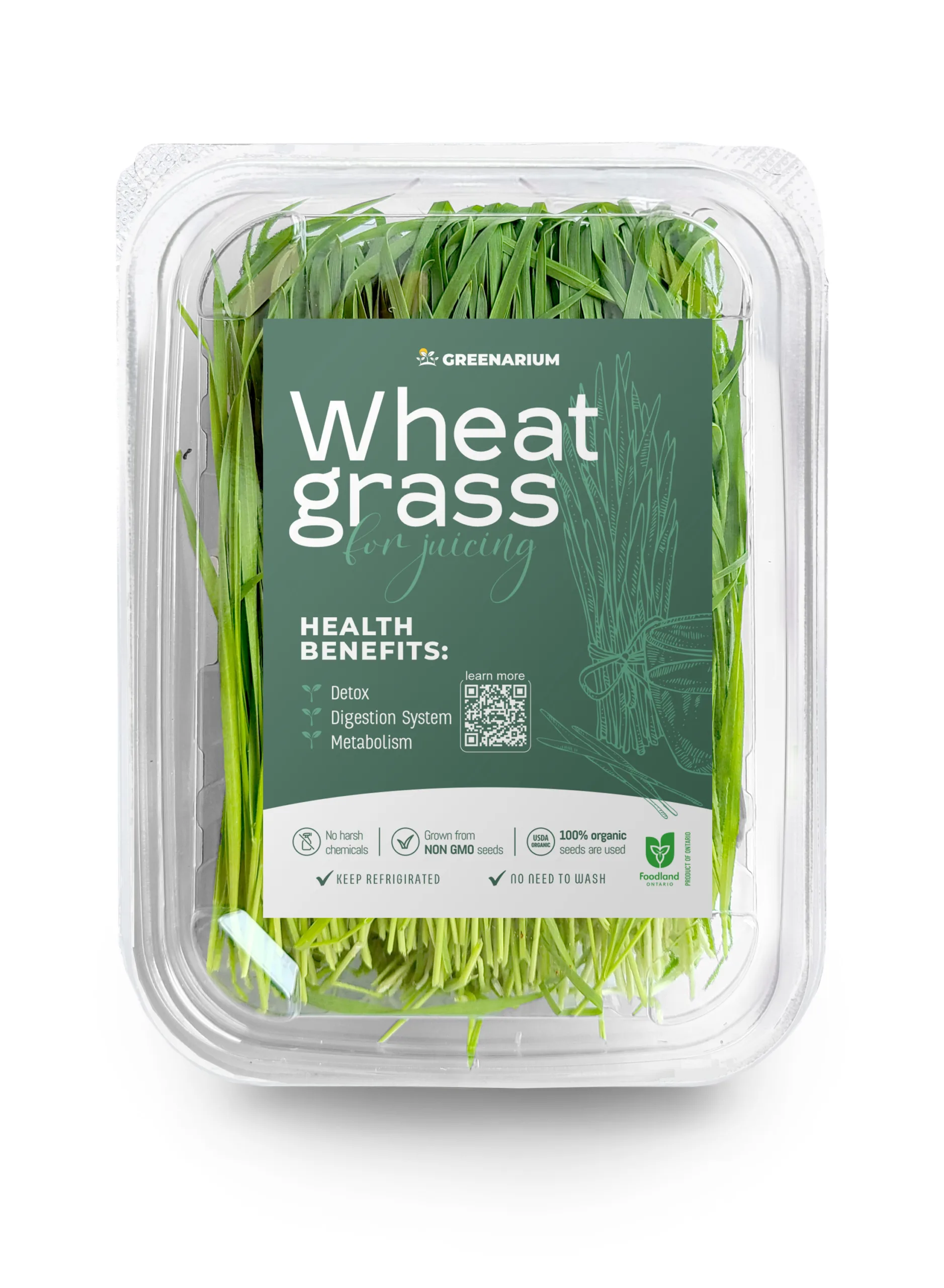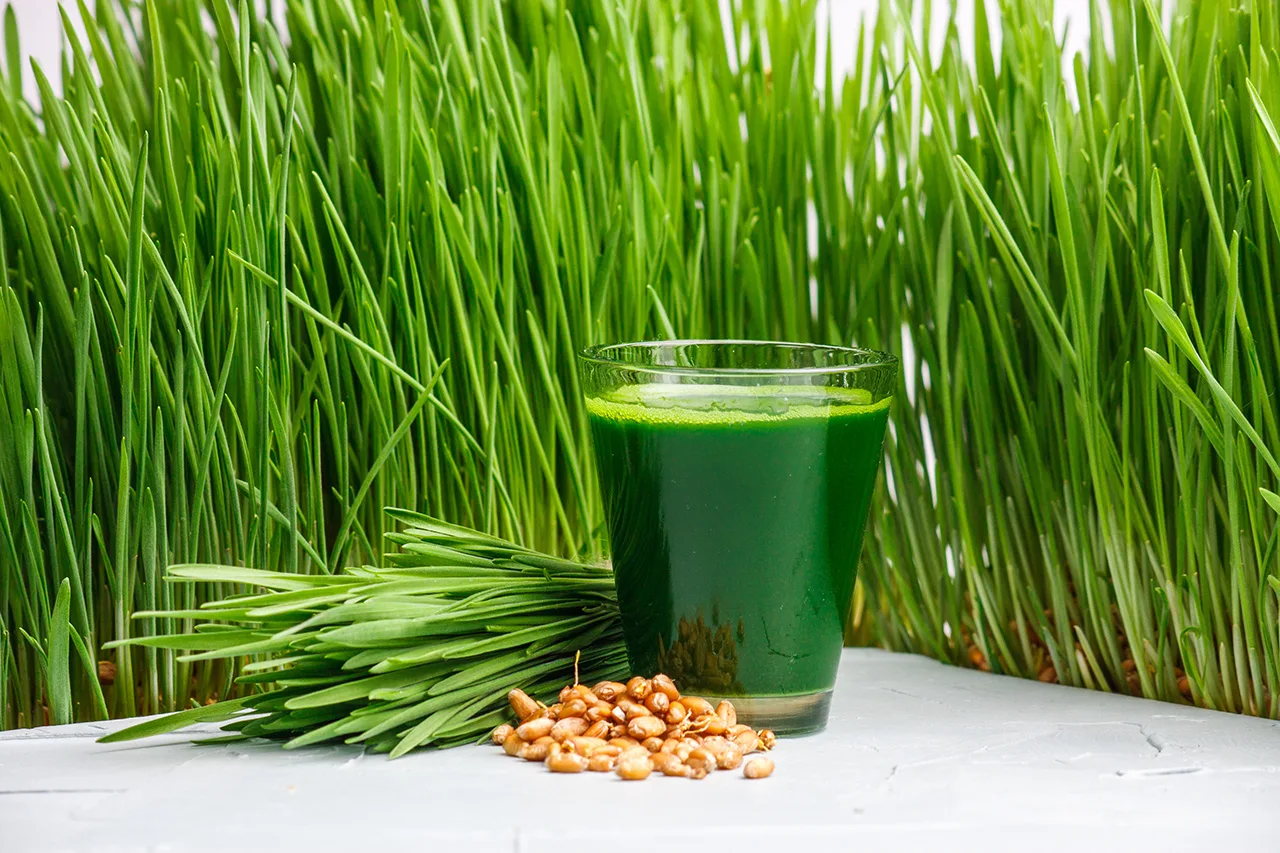Wheatgrass microgreens
Wheatgrass is the young grass of the wheat plant, Triticum aestivum. It is considered a microgreen, which refers to the young seedlings of edible vegetables and herbs harvested less than two weeks after germination when they are still small in size but packed with nutrients. Wheatgrass microgreens are grown from wheat seeds in soil or a soilless medium and can be harvested when they reach a height of about 4-6 inches, typically within 7-10 days of sprouting.
Wheatgrass is highly valued for its nutrient-rich profile, containing vitamins, minerals, antioxidants, and chlorophyll. It’s consumed primarily for its health benefits, including detoxification properties, support for metabolic and digestive health, and as a potent source of chlorophyll, which is believed to have various health benefits, though more research is needed to fully understand its effects.
People consume wheatgrass in various forms, such as fresh juice, powder, tablets, and even topical health products. Fresh wheatgrass juice is the most common form, where the grass is juiced to extract a concentrated liquid that can be consumed on its own or mixed with other juices.



